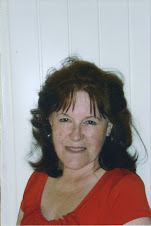Self-awareness is the ability to understand the difference between the deficits they now have and their pre-injury self. A lack of self-awareness makes it difficult to understand what their current deficits mean to their future and to the goals they may have once had.
It is the ability to monitor and correct behavior; self-awareness is not only the ability to recognize and understand their cognitive deficits but their physical and social behaviors as well. Those with this deficit cannot perceive themselves in an objective manner, often not realizing that they, in fact, have any limitations or impairments.
This lack of self-awareness will cause them to be unmotivated and they will see no need for their therapy and rehabilitation. They may lack judgment or make unrealistic goals which will make rehabilitation difficult. A lack of self-awareness may appear to be a denial of their deficits.
Those with more self-awareness will be willing participants in their rehabilitation and therefore, will be more successful in coping with their deficits and becoming integrated into the community. However, with self-awareness there is the possibility of depression when realization of their disabilities is fully recognized.
Many with brain injuries are more aware of their physical disabilities than they are of their social and emotional ones. Memory deficits can also affect the ability to be self-aware because they may not remember their behaviors and think of themselves as they were pre-injury not realizing there's a difference.
To help someone who may be suffering from lack of self-awareness, allow them to do what may be beyond their capabilities, when it is safe to do so, giving them the opportunity to learn through trial and error situations. Give them realistic and supportive feedback in a non-judgmental way, help them to set realistic goals and develop plans towards accomplishing these goals, and have them keep track of their progress.
When lack of self-awareness is a problem, making mistakes and looking for others to blame is common. Failing in their job performances may be another example of their lack of awareness. Therapists will try to get those lacking self-awareness to see the difference between their perceived levels of functioning and their actual levels of performance.
The deficit of impaired self-awareness is the most difficult to overcome and can take a long time before improved self-awareness will be noticeable in brain injury survivors.



